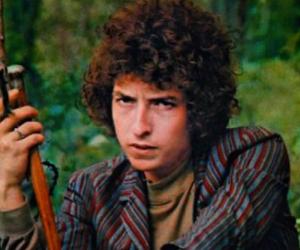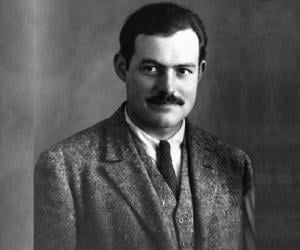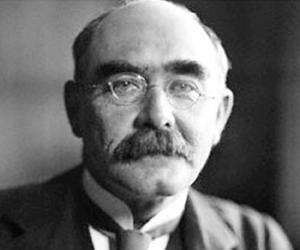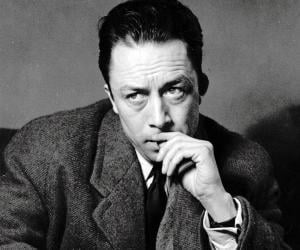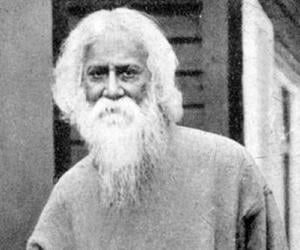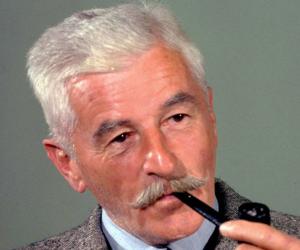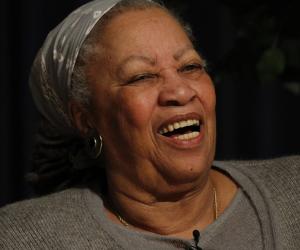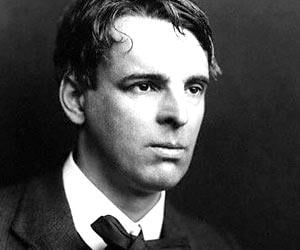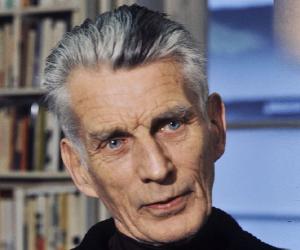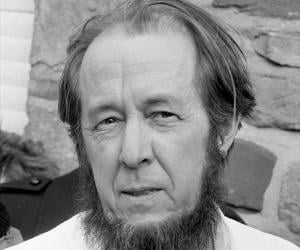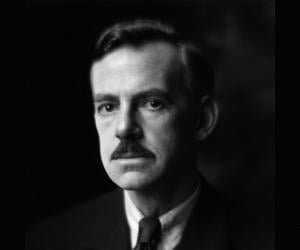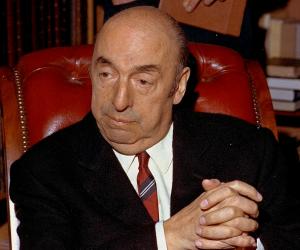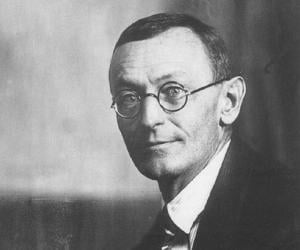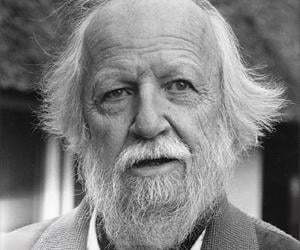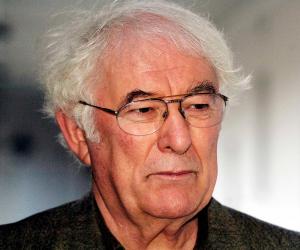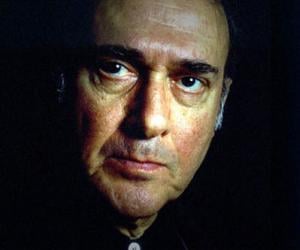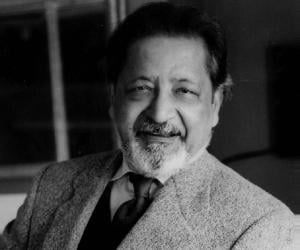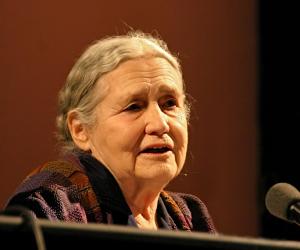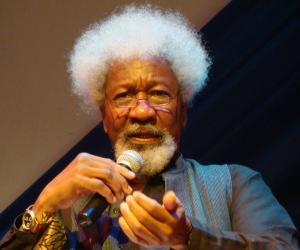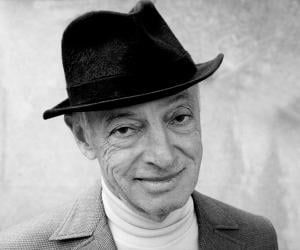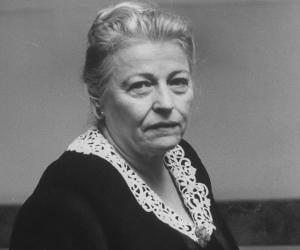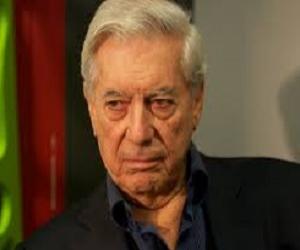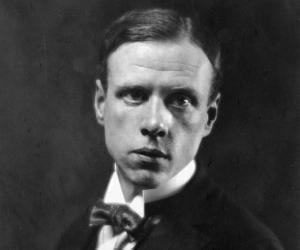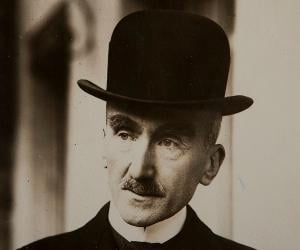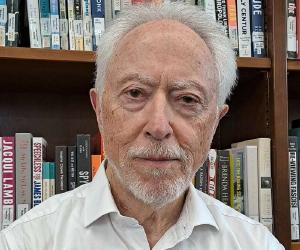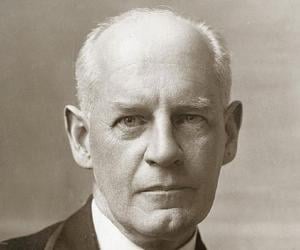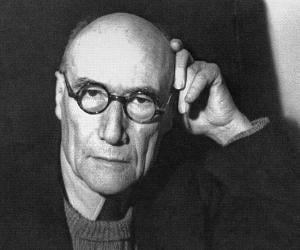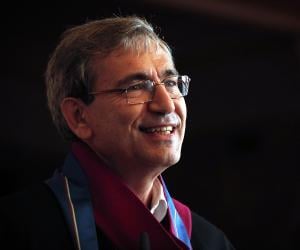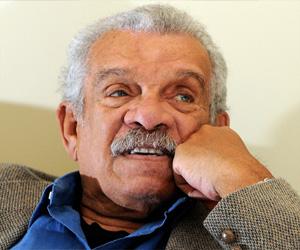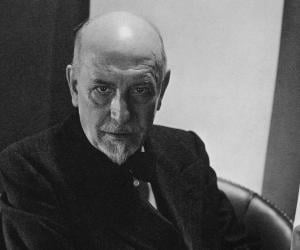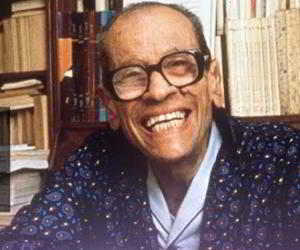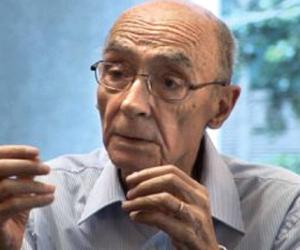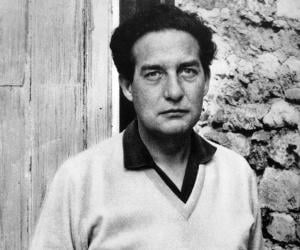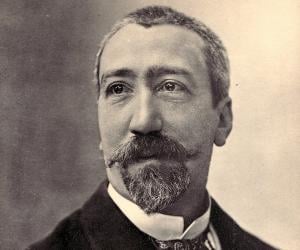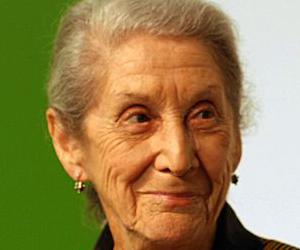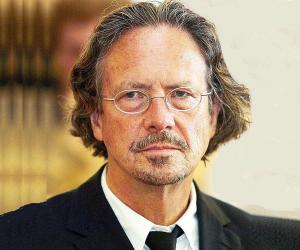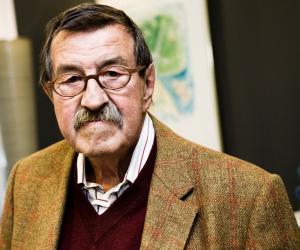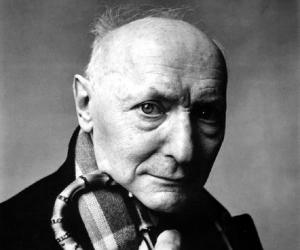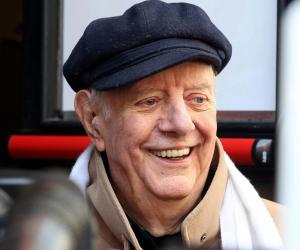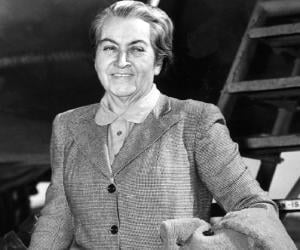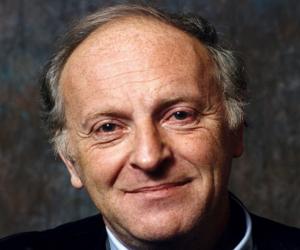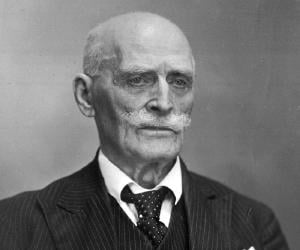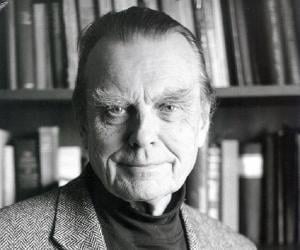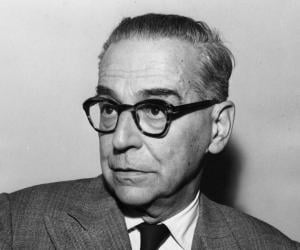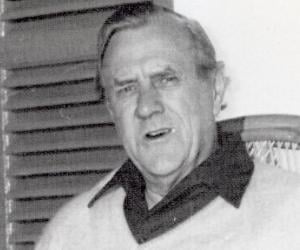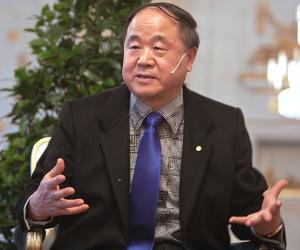Singer-songwriter and author, Bob Dylan, is widely regarded as one of the greatest songwriters of all time. Active in the music industry for almost six decades, he is a major pop culture icon who introduced a range of political, social, and literary influences to pop music. He is a Nobel laureate and a recipient of the Presidential Medal of Freedom.
Ernest Hemingway was an American novelist and short-story writer who had a strong impact on 20th-century fiction. He published seven novels and six short-story collections and won the Nobel Prize in Literature in 1954. A Farewell to Arms, For Whom the Bell Tolls and The Old Man and the Sea are some of his classic works. He ended his own life in July 1961.
English journalist, short-story writer, poet, and novelist Rudyard Kipling is best remembered for his fiction work The Jungle Book. He was born in India and many of his works are inspired by his life in the country. He was one of the most popular English writers in the late 19th and early 20th century.
Albert Camus was a French philosopher and the second-youngest recipient of the Nobel Prize in Literature. His philosophical views contributed to the rise of absurdism, a philosophical concept. Also a prolific writer, Albert Camus had an illustrious literary career; most of his philosophical essays and novels are still influential.
Rabindranath Tagore was an Indian polymath who contributed greatly to the fields of literature, art, and philosophy. Referred to as the Bard of Bengal, Tagore is credited with reshaping Bengali literature and music. The first non-European to receive the Nobel Prize in Literature, Tagore is also credited with composing the national anthems of India and Bangladesh.
Samuel Beckett was a legendary Nobel Prize-winning Irish postmodernist and minimalist playwright and author, regarded as a prominent figure of the "Theatre of the Absurd.” He is best known for the play Waiting for Godot and for his tragi-comic themes and black comedy. He was also the Saoi of Aosdána.
Aleksandr Solzhenitsyn was a Russian novelist, philosopher, historian, and political prisoner. An outspoken critic of Communism and the Soviet Union, Aleksandr Solzhenitsyn helped raise awareness of the Gulag, a government agency that oversaw forced labor camps set up in accordance with Vladimir Lenin's order. His non-fiction text The Gulag Archipelago was a highly influential work and sold millions of copies.
Eugene O'Neill was an American playwright whose works earned him several prestigious awards, including four Pulitzer Prizes for Drama and the 1936 Nobel Prize in Literature. His play Long Day's Journey into Night is frequently named among the 20th century's finest American plays. In the 1981 film Reds, Eugene O'Neill is played by actor Jack Nicholson.
Chilean poet-diplomat and politician, Pablo Neruda, won the Nobel Prize for Literature in 1971. He was a versatile writer and his works include surrealist poems, historical epics, political manifestos, and love poems. He is considered the national poet of Chile. As a politician, he served a term as a senator for the Chilean Communist Party and held several diplomatic positions.
German-born Swiss poet, novelist, and painter Hermann Hesse received the Nobel Prize in Literature in 1946. He explored individuals’ search for authenticity, self-knowledge, and spirituality in his works. An intense and headstrong person from childhood, he developed an early interest in reading. He started writing as a young man and became an influential author in the German-speaking world.
William Golding was a British playwright, novelist, and poet whose novel Rites of Passage earned him the Booker Prize in 1980. In 1983, Golding was honored with the prestigious Nobel Prize in Literature. In 1988, William Golding was knighted for his contributions to literature. In 2008, he was mentioned in The Times' list of 50 greatest British writers since 1945.
Seamus Heaney was an Irish poet, translator, and playwright. One of the most respected poets of his generation, Heaney was honored with the Nobel Prize in Literature in 1995. He also won other prestigious awards, such as the Eric Gregory Award. Several years after his death, Seamus Heaney is still considered one of the main contributors to poetry in Ireland.
Born to Indian descendants in Trinidad, V. S. Naipaul grew up to win the Nobel Prize in Literature. The author of iconic novels such as Half a Life and A House for Mr. Biswas, Naipaul was also knighted. His realistic depiction of developing countries and their miseries won hearts worldwide.
Wole Soyinka is a Nigerian playwright, poet, and essayist. In 1986, he became the first sub-Saharan African to be honored with the Nobel Prize in Literature. As a young man, he worked with the Royal Court Theatre in London. In Nigeria, he was actively involved in the country’s freedom struggle. He has taught at various international universities.
Nobel Prize- and Pulitzer Prize-winning American author Pearl Buck was raised in China by her missionary parents. She grew up to teach English literature in Chinese universities and later penned books such as East Wind, West Wind and The Good Earth, which were based on her experiences in China.
Her mother’s struggle with Parkinson's disease pushed Alice Munro into reading as an escape route. Munro later became a housewife, but soon soared to fame for her short story collections such as Too Much Happiness. The Canadian author later won the Nobel Prize and the Man Booker Prize, too.
French philosopher, Henri Bergson, is remembered for his contribution to the tradition of continental philosophy. His works were considered extremely influential, especially during the first half of the 20th century. He received the Nobel Prize in Literature (1927) and Grand-Croix de la Legion d'honneur (1930). He was a simple man who led a humble life despite his great achievements.
Nobel Prize- and two-time Booker Prize-winning author J. M. Coetzee had started his career as a Fulbright scholar. After teaching English in the U.S. and South Africa, he now lives and teaches in Australia. He is best known for his colonial settings in novels such as Waiting for the Barbarians.
Nobel Prize-winning French author Andre Gide is remembered for exhibiting the conflict between sexuality and the puritanical standards of society through his works. Much of his work was autobiographical and used the confessional format. A homosexual himself, he defended homosexuality through works such as Corydon.
Orhan Pamuk is a Turkish novelist, screenwriter, and academic. He is the recipient of the 2006 Nobel Prize in Literature. One of the best-known writers from Turkey, he has sold over 13 million books in 63 languages. He began writing in the 1970s and is the author of several novels and non-fiction works in both English and Turkish.
Derek Walcott was a Saint Lucian playwright and poet who was honored with the 1992 Nobel Prize in Literature. He was also the recipient of several literary awards like Obie Award, Royal Society of Literature Award, OCM Bocas Prize for Caribbean Literature, and Queen's Medal for Poetry. In 2016, he was made Knight Commander of the Order of Saint Lucia.
Luigi Pirandello was an Italian novelist, short story writer, poet, and dramatist. Best remembered for his plays, Pirandello was honored with the prestigious Nobel Prize in Literature in 1934. An Italian nationalist, Pirandello supported Fascism; he asked the Fascist government to melt down his Nobel Prize medal for the Abyssinia Campaign.
Nobel Prize-winning Egyptian author Naguib Mahfouz had previously worked in the Egyptian civil service. Initially a short story writer, he later wrote novels such as Al-Thulāthiyyah, or The Cairo Trilogy. His novel Children of the Alley was banned for its religious references and led him to be stabbed by Islamists.
José Saramago was a Portuguese writer who was honored with the 1998 Nobel Prize in Literature. Saramago's books have sold more than two million copies in Portugal alone and have been translated into 25 languages. Among other awards, Saramago has also been honored with the Camões Prize and America Award. He is also credited with establishing the José Saramago Foundation.
Anatole France was a French poet, novelist, and journalist. Renowned for writing many best-sellers, Anatole France was one of the most respected French writers of his generation. He won the Nobel Prize in Literature in 1921 for his brilliant literary achievements.
Nadine Gordimer was a South African political activist and writer. Gordimer, who wrote extensively on racial and moral issues such as apartheid in South Africa, was honored with the 1991 Nobel Prize in Literature. An important member of the anti-apartheid movement, Nadine Gordimer's advice to Nelson Mandela led to his famous 1964 defense speech, which eventually led to his conviction.
Peter Handke is an Austrian novelist, poet, translator, playwright, screenwriter, and film director. One of the most respected personalities in Austria, Handke has won several prestigious awards over the course of his career. In 1973, he was awarded the Georg Büchner Prize. In 1987, he won the Vilenica International Literary Prize. In 2019, he received the Nobel Prize in Literature.
Günter Grass was a German novelist, illustrator, graphic artist, poet, playwright, and sculptor. A much revered and decorated writer, Grass was honored with the prestigious Nobel Prize in Literature in 1999. Over the course of his illustrious career, Günter Grass won many other awards, including the Georg Büchner Prize and the Hermann Kesten Prize.
Nobel Prize-winning Polish-American author Isaac Bashevis Singer is best remembered for his short stories and novels that mirrored Jewish life with a tinge of irony. Born into a family of rabbis, he got a traditional education and later became a journalist. His works include the iconic novel The Family Moskat.
Nobel Prize-winning Italian playwright Dario Fo, best remembered for the play Mistero Buffo, donned many hats and made his presence felt as an actor, stage director and designer, and painter. He and his wife, actor Franca Rame, did everything from writing sketches for the show Canzonissima to founding theater companies.
Nobel Prize-winning Chilean poet and educator Lucila Godoy Alcayaga was better known by her pseudonym, Gabriela Mistral. The suicide of her first love inspired her poem Dolor. Her diplomatic assignments later took her to places such as Madrid and Lisbon. She is remembered for her emotional verses and her feminism.
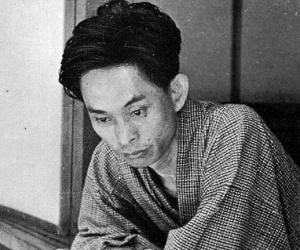
Yasunari Kawabata was a Japanese short story writer and novelist whose subtly-shaded prose works earned him the 1968 Nobel Prize for Literature, making him the first Japanese writer to receive the prestigious award. Yasunari Kawabata played a major role in the translation of Japanese literature into several Western languages including English. His works are still read all over the world.
Nobel Prize-winning Norwegian author Knut Hamsun, a leading figure of neo-romanticism, is best remembered for his novel Hunger, which narrated the tale of a starving writer. With little education, he had started his career as a shoemaker’s apprentice. He supported the Nazi occupation of Norway and was later imprisoned.
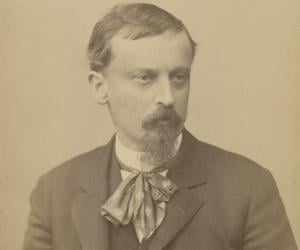
Henryk Sienkiewicz was a Polish journalist and novelist best remembered for his historical novels. He was the author of the internationally known best-seller Quo Vadis. Beginning his career as a journalist, he soon became one of the most popular Polish authors of his era. He was awarded the 1905 Nobel Prize in Literature for his contribution to literature.
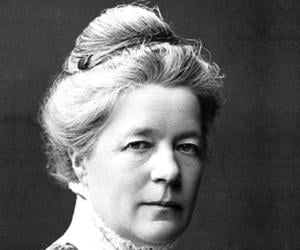
Selma Lagerlöf was a Swedish teacher and author. In 1909, Lagerlöf became the first woman to receive the prestigious Nobel Prize in Literature. In 1914, she became the first woman to be elected as a member by the Swedish Academy. In 1991, Selma Lagerlöf was depicted on a Swedish banknote, becoming the first woman to enjoy this honor, albiet posthumously.
Nobel Prize-winning Polish-American poet Czesław Miłosz, known for the iconic Poem of Frozen Time, had made a lucky escape during the German invasion of Poland but had gone back using fake documents to be with his wife, Janina. He later became a Polish diplomat and also taught in the US.
Ivo Andric was a Yugoslav short story writer, poet, and novelist. Andric won the 1961 Nobel Prize in Literature after the Nobel Committee chose him over writers like Robert Frost, E. M. Forster, John Steinbeck, and J. R. R. Tolkien. After receiving the award, Andric's works were translated into several languages as they found an international audience.
Patrick White was an Australian writer whose fictional works incorporated stream of consciousness techniques, shifting narrative vantage points, florid prose, and humor. In 1973, he became the first Australian to receive the prestigious Nobel Prize in Literature. Over the course of his illustrious career, White published 12 novels, eight plays, and three short-story collections.
Nobel Prize-winning Chinese author Mo Yan is best known for his novel Red Sorghum Family, which was later made into a film. His novel Big Breasts and Wide Hips was dragged into controversy for its sexual content, and the Communist Party made Yan withdraw the book from publication.
